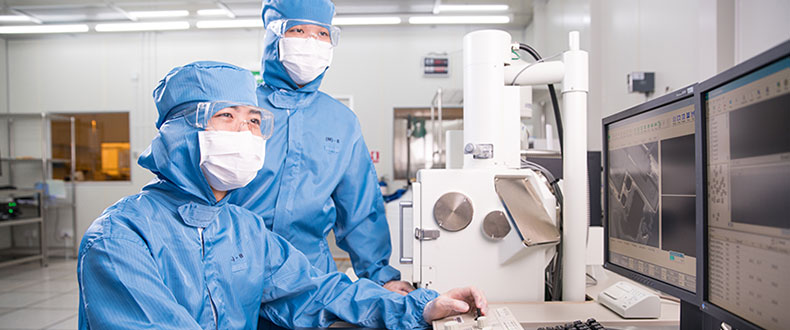
Electronics is the major industry underpinning Singapore's economic growth. The electronics industry is the largest contributor to Singapore's GDP from the manufacturing sector.
Singapore's electronics industry is a world-class, innovation-driven hub that provides technology, manufacturing, and business solutions to enable the development of new growth areas. Today, Singapore has more than 30 integrated circuit (IC) design centres, over 20 wafer fabrication plants, and over 15 companies with research and development (R&D) or manufacturing operations for IC assembly and test.
This programme provides participants with a strong foundation in Electrical and Electronics (EE) Engineering, preparing them for the diverse and dynamic EE industry.
Participants will undergo a 12-month structured training programme including on-the-job training, facilitated, and e-learning training under the Work-Study Certificate Leading to Diploma in Engineering (Electrical and Electronics).
Upon completion of the programme, graduates will be able to:
-
Apply technologies and processes of IC fabrication and packaging
-
Make a decision on the choice of measurement and imaging techniques, depending on the application
-
Develop a good understanding of the thin film technologies
-
Equip fundamental knowledge and appreciation of analogue electronics
-
Design and implement basic data acquisition systems
-
Analyse, design and implement linear ICs
Target Audience
Working adults (Nitec or Higher Nitec holders) who wish to embark on a career in the electrical and microelectronics sector. Support the career advancement by allowing them to build on the skills and knowledge, and to subsequently receive a Diploma in Engineering (Electrical and Electronics).
What is So Unique About This Programme?
This programme offers two specialisation tracks, with a strong demand for skilled and trained professionals:
Under the Work-Study Certificate programme, you may enjoy additional benefits such as sign-on incentives with full-time employment, assigned company mentors, well-structured trainings, and career advancement opportunities.
Upon completion of the Work-Study Certificate programme, participants will have the option to take on the Part-Time Diploma in Engineering (Electrical and Electronics).
How Often Do I Need to Attend the Course?
Lessons will be held three times a week at Republic Polytechnic.
Course commences in October.
| Number of Lessons |
Duration |
| Three times a week (Weekdays) |
6:30pm - 9:30pm |
Note: Some lessons will be conducted online.
What Will I Get Out of This Course?
Joining RP’s Work-Study Certificate Leading to a Diploma in Engineering (Electrical and Electronics) has deepened my fundamental skills and knowledge. By studying and working at the same time, I gained more experience as I am able to learn new concepts and apply them at work. It is a great opportunity for those wanting to gain more experience, skills, and fundamental knowledge.
Joining RP’s Work-Study Certificate Leading to a Diploma in Engineering (Electrical and Electronics) has deepened my knowledge about electrical circuits and diagrams. The course will help me to progress tremendously at my future workplaces. Practical sessions truly helped me to understand the aspects related to circuits. Therefore, I could better comprehend the theories in the worksheets.
Joining RP’s Work-Study Certificate Leading to a Diploma in Engineering (Electrical and Electronics) was a new experience for me and I had a rough start. Fortunately, I had good lecturers who helped me develop the skills I needed to excel in writing academic papers and exams.
WSP Eligibility
Singaporeans and Singapore Permanent Residents who are:
- within three years of graduation from ITE or the Operational Ready Date (ORD) for full-time National Servicemen, or
- within five years of graduation from ITE, and if their employer is a participating company.
Course Entry Requirement
Applicants should possess a relevant NITEC (min. GPA: 2.0) or Higher NITEC Certificates from the feeder programme as listed here.
Admission will be reviewed and approved by the polytechnic on a case-by-case basis.